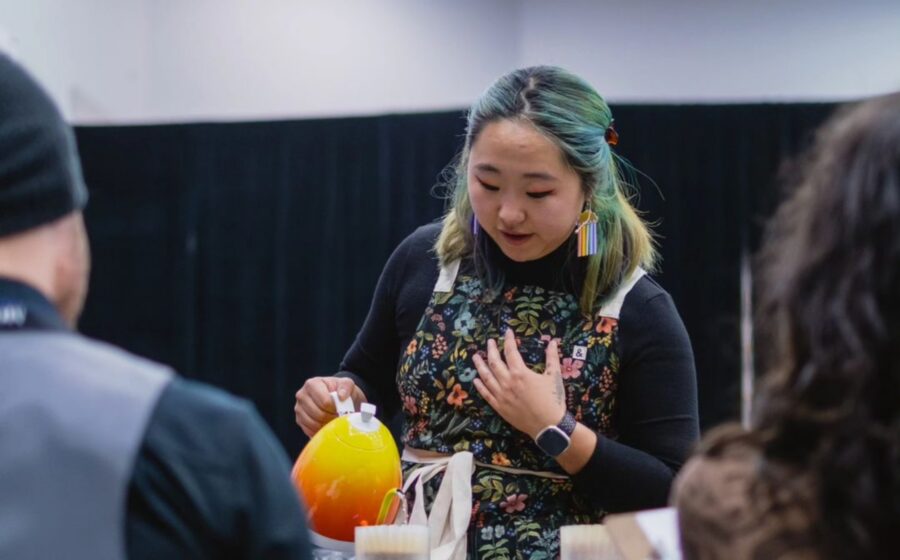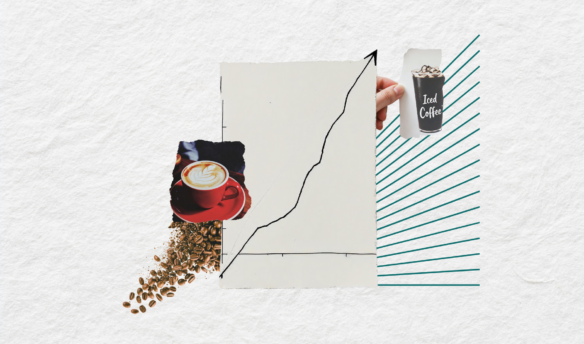Each year, the United States Coffee Championships (USCC) welcomes coffee professionals to compete in a series of coffee-specific competitions, like the US Barista Championship, which focuses on espresso-making and presentation skills, or the US Brewers Cup, which celebrates brewed coffee and being able to describe precise tasting notes.
Winners go on to represent the US at the World Coffee Championships, and because of the scale of these competitions, rules and standards have to be strict. Competitors commonly use their time on stage (barista competitors get 15 minutes to present a series of coffee courses to judges; brewers get eight) to share personal anecdotes and explain why they chose their coffee among a veritable sea of other delicious possibilities. As a result, many competitors select a coffee that speaks to them personally, enabling them to imbue meaning and emotion into their routine.
For Asian coffee competitors, choosing a coffee that speaks to their heritage means choosing an origin whose potential is routinely underestimated and scores lower on average than coffee from other regions. Despite this, a growing number of Asian coffee professionals have built routines around Asian coffees, finding clever and innovative ways to uproot prevailing biases and stake a claim within the world of specialty coffee.
Challenging Expectations with Robusta
In 2023, Maya Nguyen, nee Crowley, became the first to compete at USCC with a 100% robusta coffee.
For every coffee competition, judges undergo an extensive calibration process, and one obstacle when using Asian coffees, particularly robustas, is that “judges are trained to perceive certain sensory attributes as signals of quality,” says Nguyen. “The scope of that,” she reasons, “is limited to arabica coffee.”
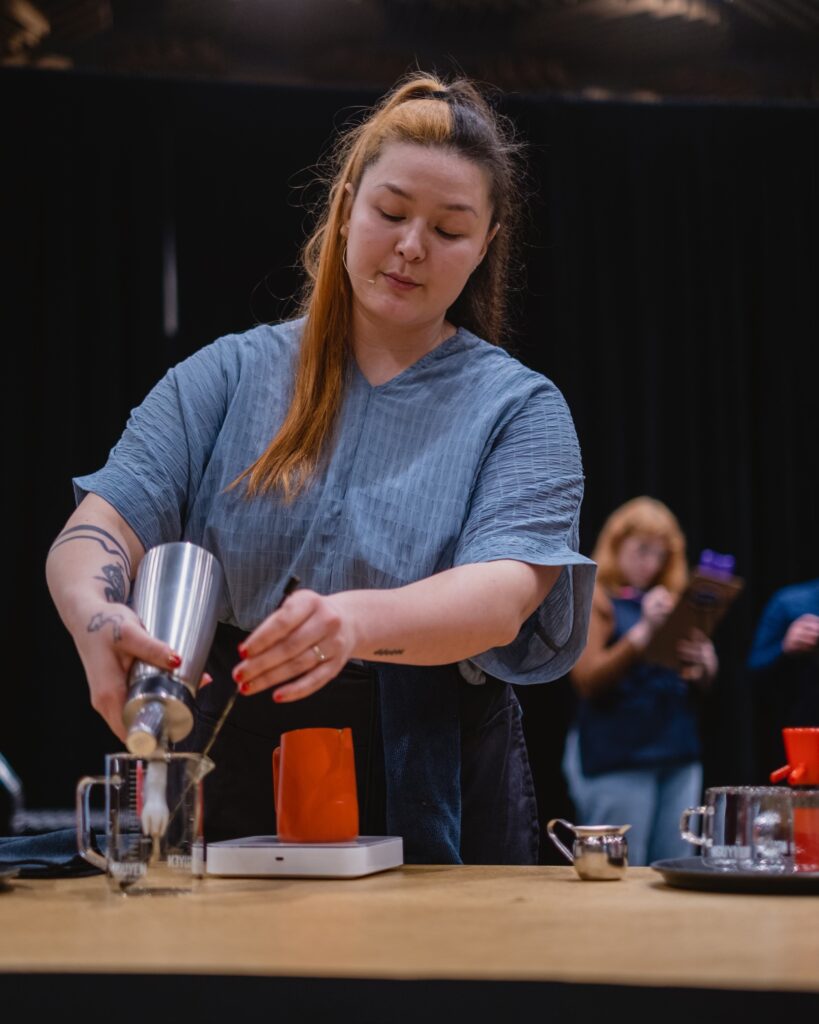
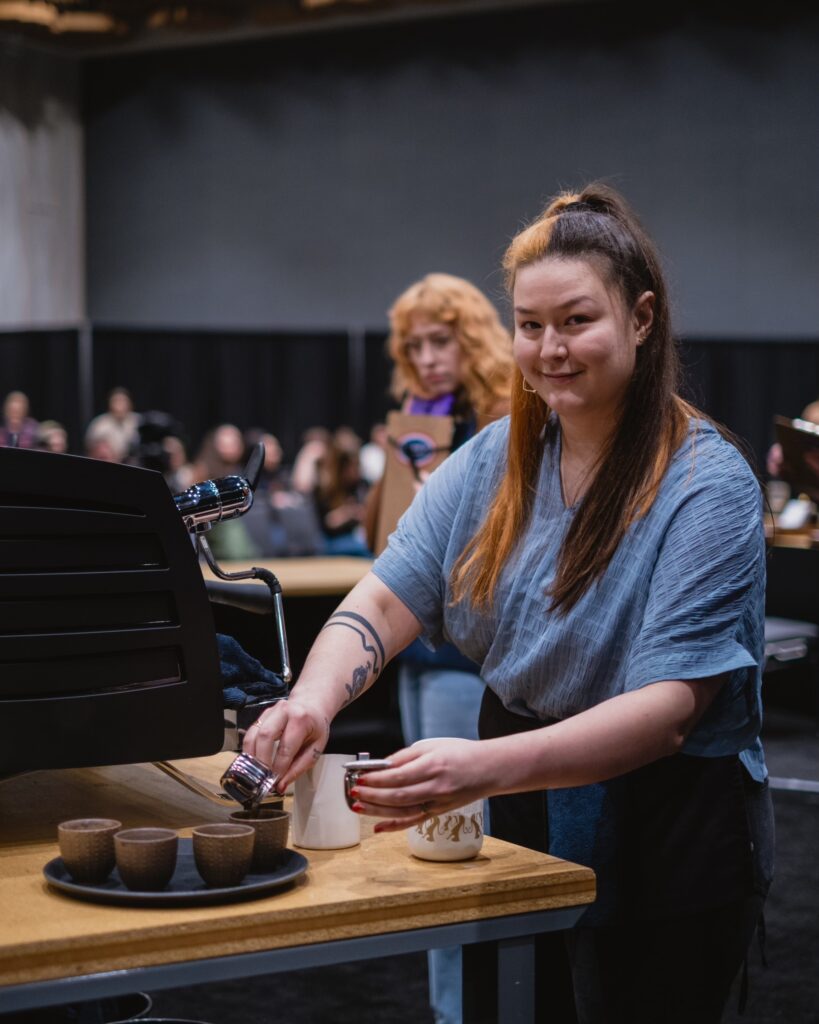
Nguyen knew competing with robusta was risky. “How can someone score something they have no context for?” she asks. So, instead of focusing on winning, Nguyen approached the competition with the goal of presenting her coffee to the judges as best she could. She hoped her presentation would be educational and increase interest in learning about robusta. To prepare for a judges’ panel she suspected may never previously have tasted a fine robusta, Nguyen grounded her presentation in something she knew to be both enticing and familiar: anaerobic fermentation, a popular processing method increasingly seen in competition.
Using an anaerobic robusta from New York-based Vietnamese coffee roastery Nguyen Coffee Supply, Nguyen leveraged judges’ familiarity with the processing method as a jumping-off point to broaden their horizons beyond arabica. “What might be a signal of poor quality in arabica might not be in robusta,” Nguyen says.
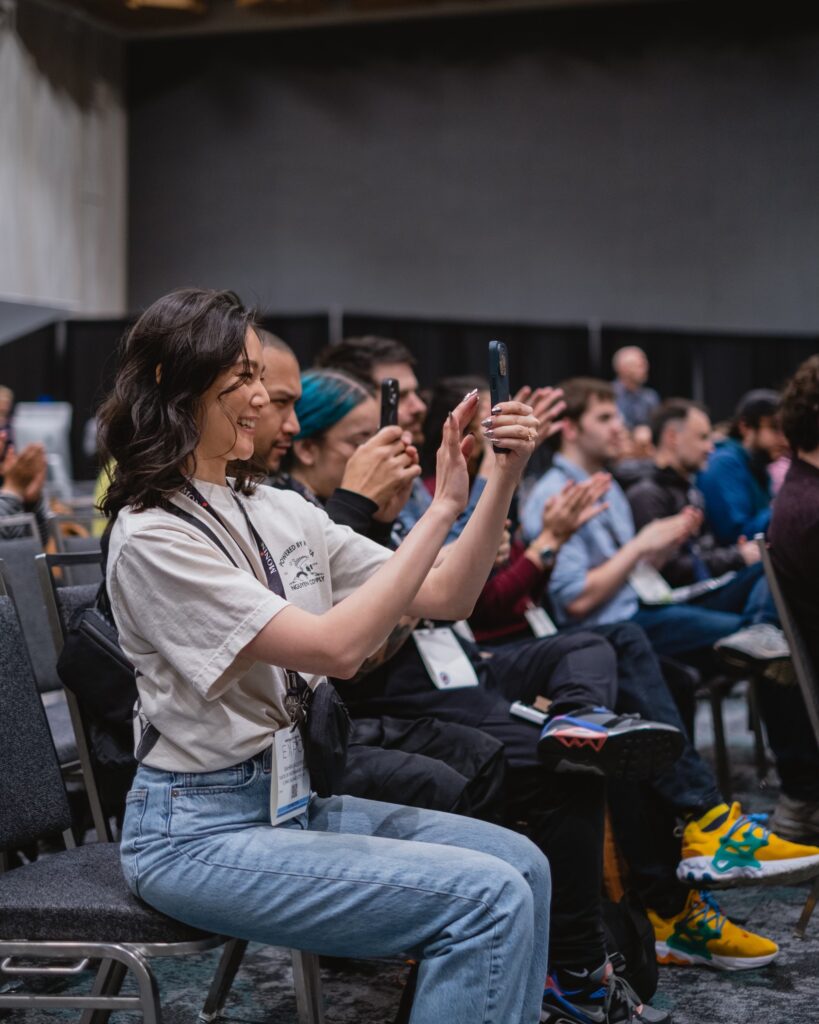
According to Nguyen, anaerobic processing shifts one’s perception of acidity. She hypothesized this would increase judges’ willingness to approach the characteristic acidity of robusta coffee from a place of curiosity and increase the judges’ receptivity to new information. She used what she saw as a window of opportunity to provide insights into how to taste fine robusta. Nguyen described her coffee as having flavors of mulling spices, winter melon, and passion fruit.
While Nguyen competed on the barista stage, Mar, founder of Tanbrown Coffee, used a coffee from Myanmar during her Brewers Cup routine.
Across several competition cycles, Mar has observed a predisposition in the USCC scoring system “toward fruit and bright flavors, whereas Asian coffees tend to be more herbal.” Similar to Nguyen, this shifted the way they approached competition. “I just wanted to learn a lot, meet people, and advocate for Asian coffee equity in the industry,” she says. “Winning was not my goal. I wanted to learn as much as possible with the tools I was given.”
The Road to Second Place with Thai Coffee
Peace Sakulclanuwat, coffee trainer and educator at Coffee Project New York, also decided to compete without any specific aspiration to win. “[My goal was] not to win but to highlight the growth of Asian coffee in the industry,” she says.
Sakulclanuwat has been competing in the Brewers Cup since 2019 and has consistently brought coffee from Asia to the stage. Over the last five years, her goal has been to increase the prominence of Asian coffees in competition and help audiences recognize the delicious attributes of coffees from the region, especially coffees from her home country of Thailand.
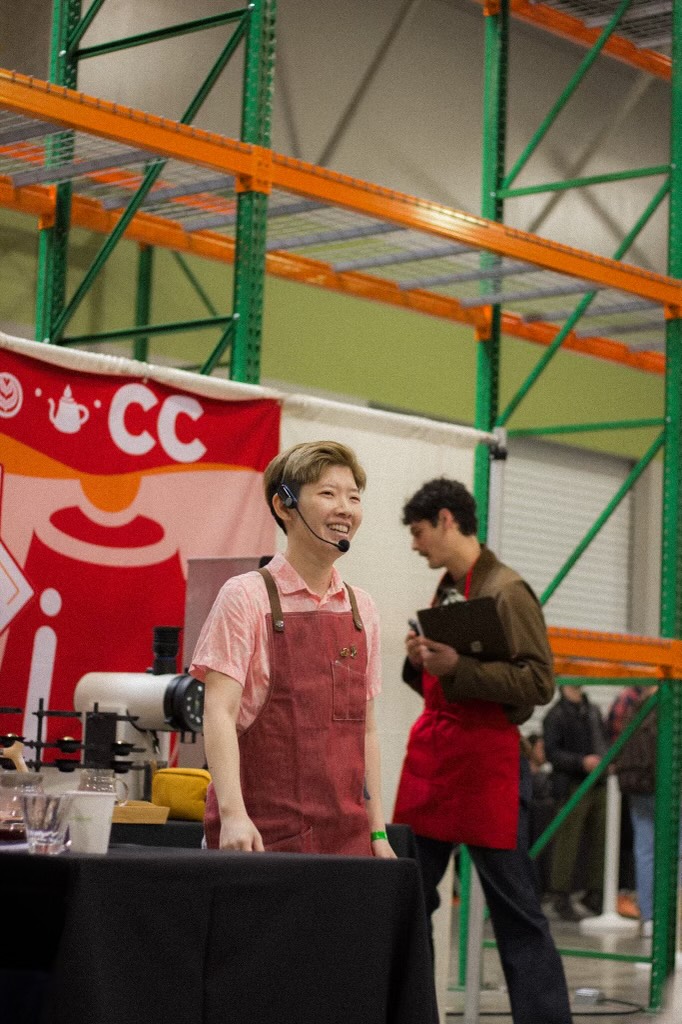
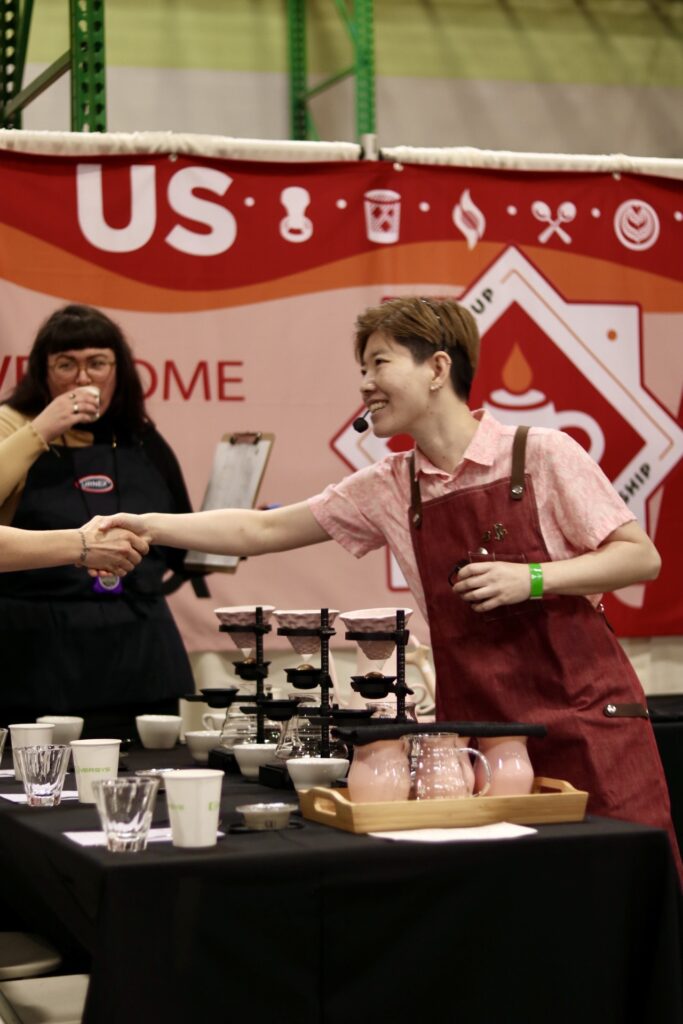
After years of competing, in 2024, Sakulclanuwat took a different approach: she decided to blend two coffees, one from Thailand and the other from Colombia. She leaned heavily into metaphor during her presentation, likening how a blend is two or more coffees “supporting” each other to how her team, coach, and sponsors supported her to compete. Brewed using a CT62 Coffee Dripper, Sakulclanuwat describes her coffee as having a yellow stonefruit acidity, flavors of nectarines, golden raisins, rainier cherry, and rum, a silky milk tea mouthfeel, and a coffee blossom aroma.
Sakulclanuwat’s plan worked. She won second place in this year’s US Brewers Cup Championship, a feat she could not have imagined at the start of her competition journey.
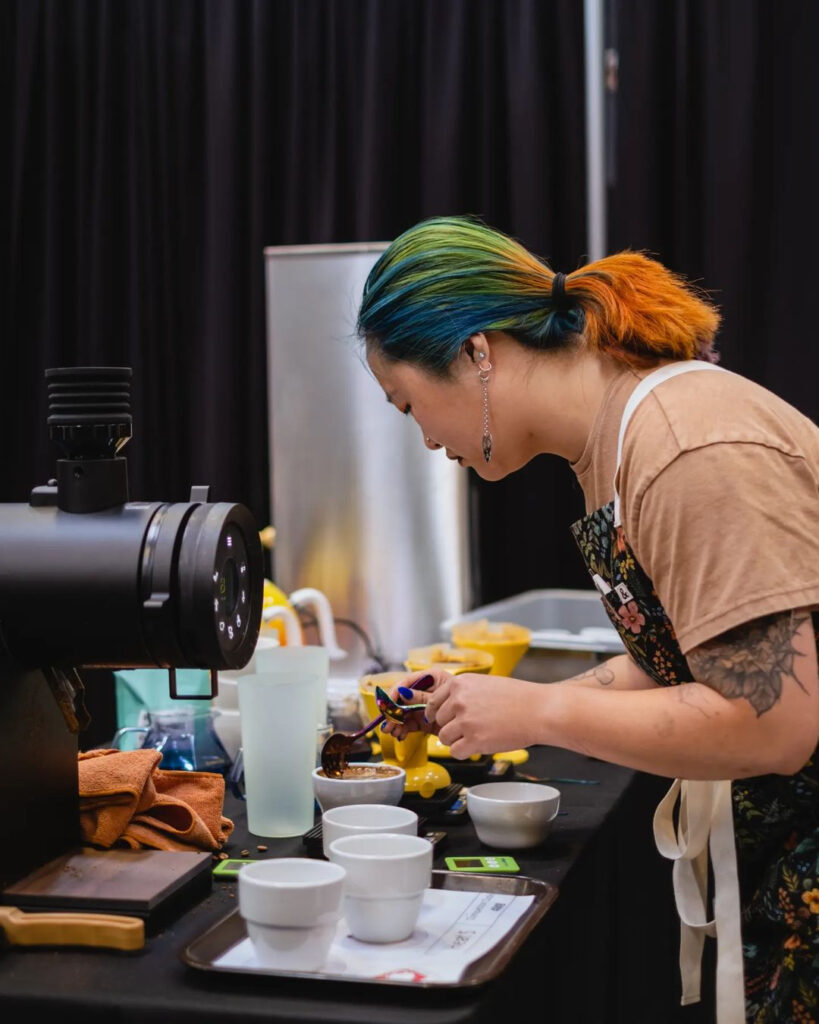
“I’m proud and honored to share a part of my heritage with [a] coffee from my home country that I truly believe in,” she says. “With or without competition… I hope to inspire folks who have the same passion for Asian coffee to do the same for our community.”
Nguyen, Mar, and Sakulclanuwat share a vision for the future of competition, and the industry more broadly, where competing with Asian coffee is not an uphill battle. They hope coffee professionals continue challenging expectations and assumptions about coffee on and off stage and cultivate a deeper understanding and appreciation for all coffees.
“Nothing is impossible if you believe in yourself and keep striving for the best,” Sakulclanuwat says.
Nguyen agrees: “When we work from curiosity instead of accepted bias, we can only grow.”
Cover photo by Matthew Temple
